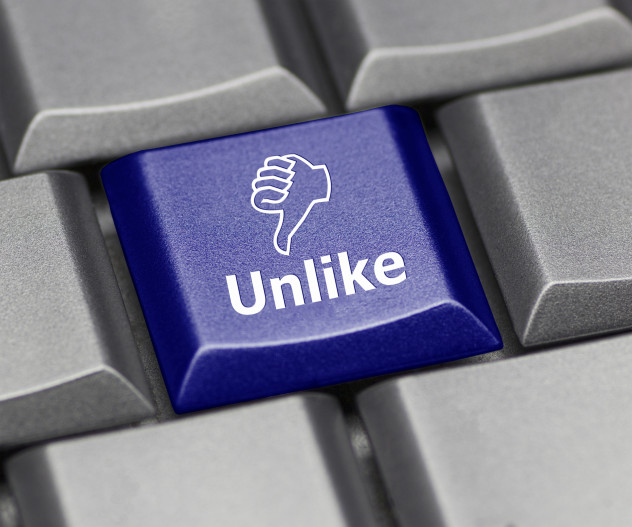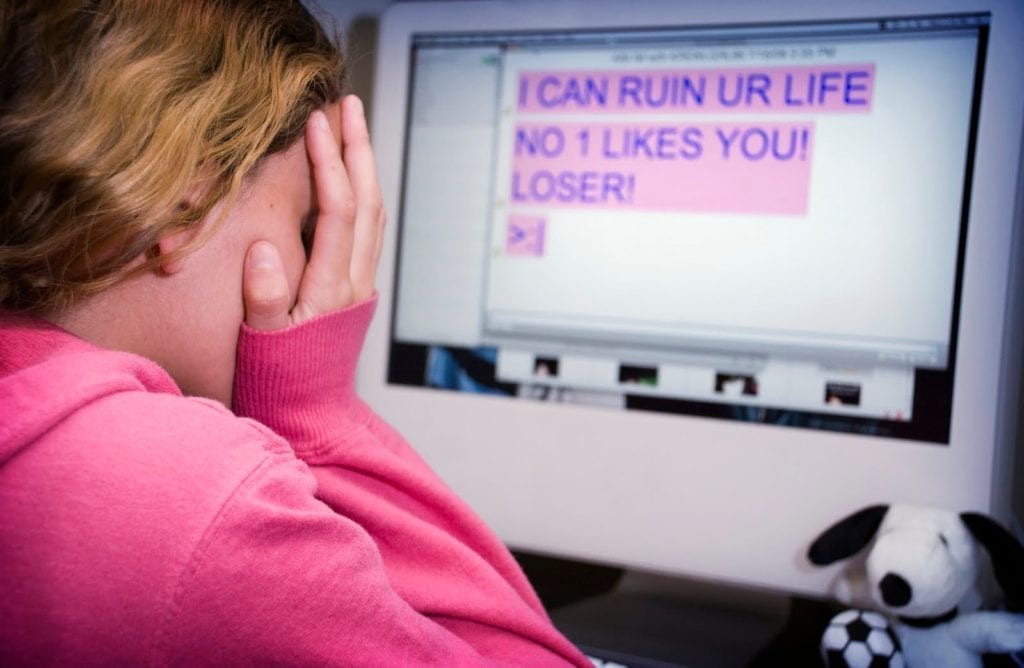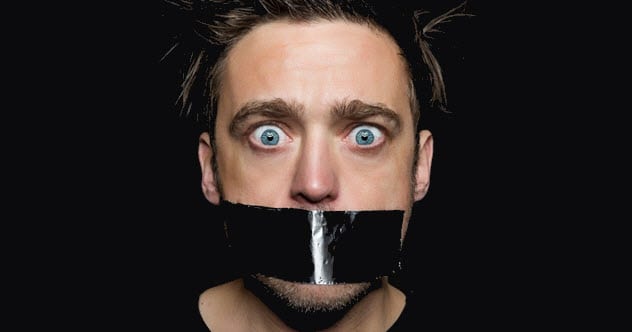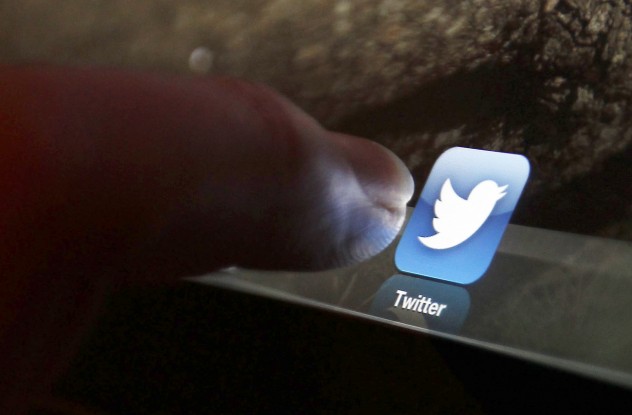 Weird Stuff
Weird Stuff  Weird Stuff
Weird Stuff  Mysteries
Mysteries 10 Tragic Disappearances and Deaths in Joshua Tree National Park
 History
History 10 Ways Childhood Really Sucked in the Old West
 Music
Music 10 Name Origins of Famous Bands from the 1990s
 Religion
Religion 10 Biggest Turnarounds by the Catholic Church
 Weird Stuff
Weird Stuff 10 Unbelievable Times Laws Had Unintended Consequences
 Humans
Humans Ten Historic Women Who Deserve Way More Credit Than They Got
 Movies and TV
Movies and TV 10 Films That Spawned Major Lawsuits
 History
History Ten Times Towns Were Wiped Off the Face of the Earth
 Creepy
Creepy 10 of the Most Disturbingly Haunted Public Houses in the UK
 Weird Stuff
Weird Stuff 10 Niche Subcultures That Are More Popular Than You Might Think
 Mysteries
Mysteries 10 Tragic Disappearances and Deaths in Joshua Tree National Park
 History
History 10 Ways Childhood Really Sucked in the Old West
Who's Behind Listverse?

Jamie Frater
Head Editor
Jamie founded Listverse due to an insatiable desire to share fascinating, obscure, and bizarre facts. He has been a guest speaker on numerous national radio and television stations and is a five time published author.
More About Us Music
Music 10 Name Origins of Famous Bands from the 1990s
 Religion
Religion 10 Biggest Turnarounds by the Catholic Church
 Weird Stuff
Weird Stuff 10 Unbelievable Times Laws Had Unintended Consequences
 Humans
Humans Ten Historic Women Who Deserve Way More Credit Than They Got
 Movies and TV
Movies and TV 10 Films That Spawned Major Lawsuits
 History
History Ten Times Towns Were Wiped Off the Face of the Earth
 Creepy
Creepy 10 of the Most Disturbingly Haunted Public Houses in the UK
Top 10 Ways Social Media Is Ruining The World
Fifteen years or so into the grand experiment of social media, grading its overall net impact is impossible only because there’s no such thing as an F-minus.
Grandstanding virtue signallers, vengeful social justice warriors, posed poseurs pretending their lives are utopian, questionably sourced news items shared by even more questionably sane acquaintances… all there for the scrolling on platforms that make users, to varying degrees, addicted, boring, politically segregated, and less tolerant.
Here are ten reasons why this list’s title isn’t just another online exaggeration.
Top 10 Disturbing Facts About Facebook
10 Wait… What? Our Diminished Attention Spans

Last year, Microsoft conducted a study to discover whether our attention spans were shorte…
… Hello? You still reading this?
OK good. Last year, Microsoft conducted a study to ascertain the average human attention span. Far from a charitable endeavor, the survey was held to help marketers grapple with diminishing consumer concentration levels. By 2000, average attention span had already plummeted to 12 seconds, and researchers wondered whether another two decades of widespread Internet proliferation had eroded it further.
The result? Eight seconds. EIGHT. That’s one second LESS THAN A GOLDFISH.[1]
While it’s impossible to name social media the lone culprit, it’s obvious that 280-character tweets and 15-second TikTok videos (which, apparently, are exactly seven seconds too long) play a significant role. A 50% drop in our ability to concentrate in just a generation doesn’t happen without a deluge of distracting, ubiquitous and largely extraneous stimuli.
Another way social media negatively affects attention spans is its inherent “multitaskability.” This means that we’re often engaged in social media AND something else – a conversation, a TV show, reckless driving, etc.
Behaviors like scrolling through Instagram while pretending to watch your kid’s soccer game are linked to compromised attention spans and difficulties remembering things clearly. The explosion of social media content also has led to abbreviated content interaction; for example, mobile users on Facebook average just 1.7 seconds of attention per item.
9 Cyber-Crack: Social Media & Addiction

Social media can be as physically and psychologically addictive as any substance (such as nicotine) or compulsion (such as gambling). As many as 10% of Americans meet the criteria for social media addiction.[2] Here, no factor is larger than the “FOMO Effect” – an incessant urge to stay informed on what others are doing.
Unfortunately, falling into a FOMO trap leaves one feeling lonelier rather than more connected. Faced with smiling pics of friends in staged, often disingenuous settings, we’re left with the sense that others’ lives are happier than ours. This can lead to a sick sort of compulsive cyberspace comparing that leaves us feeling left out rather than linked in.
Addictive social media use looks similar to other obsessive disorders. Symptoms include mood modification (engagement in social media provides an initial emotional lift, even if its long-term effect makes us feel worse); preoccupation; reduced tolerance to social media’s initial dopamine burst, leading to ever-increasing use; withdrawal symptoms; in-person relationship problems caused directly by obsessive social media usage; and, of course, relapse into compulsive behavior after a period of abstinence.
One sickening statistic sums up society’s collective social media addiction: Americans check their phones an average of 160 times per day.[3] While not all of that is social media-driven, a sizable percentage certainly is.
8 Please Like Me

Social media has turned us into puppies rolling over for treats. Except instead of dog biscuits, we’re begging for likes, follows and shares. The flip side of FOMO, this virtual validation is another reason social media is so habit-forming.
By design, social media thrives upon the human need to feel acknowledged, agreed with and accepted. Who among us hasn’t posted something self-perceived as endearing or clever… then checked back incessantly for cyberspace’s Almighty approval?
This form of acceptance seeking draws a distinct, deleterious difference between in-person interactions. When we walk into a room of people and say something, we receive reactions and feedback in real-time, and a deeper dialogue can commence instantly. By contrast, social media’s “room” is far more populous, and our remarks are initially unrewarded with feedback. We have to seek it out (by checking back in), a process that provides both anticipatory and actual mini-hits of dopamine.[4]
Not only are these check-ins alluring and addictive (who doesn’t derive pleasure from seeing a post gather likes and comments over hours or days?), they’re also educational – in a bad way. We soon learn what types of posts garner the most positive feedback, and tend to skew toward topics that draw praise from our fellow avatars. This sort of self-guardrailing ties in with our next entry…
7 Cyber Chickenshits

Social media makes people cowards. Realizing what types of posts typically draw the most likes, shares and follows – photos of children, sappy homages to a spouse or parent, virtue signaling about how oh-so-inclusive we are – many choose to keep the like-based dopamine flowing by largely avoiding anything deemed controversial.
This cyber-safety is both eye-rollingly pathetic and completely logical. We become attached to social media partly because of the peer-based rewards the platforms dole out. Recognizing the milquetoast posts that play the best with the largest swath of online cohorts, we tend to stick with this bland recipe for success rather than risk stirring the pot.
Holy Christ are most people boring online; what’s worse, they’re even encouraged to be.[5] Especially in the era of Wokeness and cancel culture (more on that later), social media increasingly comprises a self-silenced majority too timid to express an original or against-the-grain thought lest they be reprimanded by employers, scorned by friends and family or subjected to some other largely imagined cyber-flogging.
Faced with the choice between receiving praise for ho-hum or blowback for bravado, most choose the former. They shelf their courage and conform to cat videos like validation-seeking cyber-sheep.
But of course, some people take the polar opposite position. And that takes us to…
6 Social Media Machismo: Typing Toughguys

“You’re a threat to women everywhere. Get AIDS and die, you f*cking *sshole.”
Now, regardless of whether I’m actually a threat to women everywhere (not true; it’s really only those in my general vicinity), I would contend that my previous Facebook comment deserved neither name-calling nor a diseased death. And from a friend of a friend – a “Person I May Know” – no less!
What was my comment? The simple statement that I was pro-life, and didn’t see this position as conflicting with my conviction that gay people should have full equality under the law, including the right to marry and adopt children. How very threatening of me.
Were that exchange in-person, while my HIV-hexing counterpart and I likely wouldn’t have arrived at complete consensus, it probably wouldn’t have devolved into me being lumped in with rapists and serial molesters.
This is just one example of how social media has coarsened discourse. Free from looking people in the eyes and well removed from striking range (remember ladies: I’m a threat), we’re free to let the profanity-laced trolling, taunting and demonizing begin.
Worse, many social platforms – including Disqus (see below) – allow loudmouths to flex their faux muscles in anonymity, removing any recourse for their disgusting behavior (also see below). You wanna come at me, bro?[6] Then have the courage to use your real name. “Tough” and “incognito” are oxymorons.
5 The Wokest Link
Social media rewards extremism and shuts down measured mainstream ideas. Undoubtedly, this happens on the extreme right – where, among other notions, the idea that even centrist Democrats and liberals are part of a vast socialist conspiracy helped lead to the shameful January 6 storming of the US Capitol Building.
But this is an even larger issue on the left, where widespread virtue signaling leads to ridiculous leftward lurches as Wokerati vie for the “purest” positions. Simply put, social media dialogue smothers social issues dialogue, castigating and drowning out dissent.
For starters, EVERYTHING gets tied either to overt bigotry or institutional racism. While those things certainly exist, leftist social media extremists deem any nuanced position as inherently racist, backwards or outdated (“OK Boomer” is a prime example). In particular, white heterosexual males are shunned and dismissed simply for being white, heterosexual and male – three identities they were born into. That’s the textbook definition of prejudice.
Social media also rewards and normalizes pusillanimous trigger-signaling. Every time another word, person or classic work of literature is pilloried for not meeting 2021 standards of social justice, a snowflake angel gets its wings.
Often, such nonsense is driven by latte liberal whites who’ve self-assigned themselves with tackling non-problems; a key example is the proliferation of the word “Latinx,” which removes “gender stigma” from the words “Latino” and “Latina.” Only 3% of Latinos use the term,[7] concocted by guilt-ridden, ivory-tower whites. Newsflash: the Spanish language assigns gender to everything, including common nouns.
4 Show Stopper: Cancel Culture Run Amok
Social media has made perceived impurities and honest mistakes a fireable, even life-ruining offense. It has done so by allowing the most extreme, bloodthirsty voices to dominate public discourse despite representing a small fraction of the actual public.
Jesus Christ… can someone make a goddamned mistake any more without being permanently banished? Can a conservative express a conservative opinion without being fired from a tech company or written out of a TV show? And even if an offense is objective rather than politically subjective, will we continue to dismiss decent, largely well-intending people based on one bad judgment?
What’s odd is that cancel culture is typically a friendly fire event: The left expresses outrage for an offense, and the consequences are unevenly split along political divides. Conservatives can elect a president who brags about grabbing women’s genitals, while liberals force the resignation of a Democratic Senator, Al Franken,[8] for a poor attempt at gender humor – despite the fact that before being a politician he was… you guessed it, a professional comedian.
With cancel culture, we once again encounter social media’s disdain for nuance. For every terrible person (Harvey Weinstein) and oppressive symbol (the Confederate flag) that deserve to go the way of the dodo, there are countless good-hearted folks who simply made the unforgivable mistake of being human during the age of social media.
3 Feedback Loops and Echo Chambers: Death by Algorithm
Social media isn’t entirely responsible for the intractable siloing of political opinions in the Western world, but it has certainly accelerated and exacerbated this troublesome trend.
Before the Internet, information sources were limited. While this definitely dampened the proliferation of non-mainstream opinions, this easier-to-navigate playing field also provided a foundation of facts upon which a vast majority of the public agreed. While the Internet exponentially expanded media sources – and introduced the ability for like-minded yet physically separated individuals to congregate – it was social media that took this information segregation to its current unsustainable lengths.
This is no accident. While the Internet catered to individual proclivities – especially political leanings – inherently, social media does so intentionally. To keep users engaged and therefore sell more ads, entities like Facebook and Twitter monitor our interests and feed us more of the same, columnizing us by a variety of factors, including political affiliation.
As we gather news from like-minded media and read comments from like-minded avatars, opinions become hard-set and immovable, while opposing stances become not only disagreeable but disgusting. In less than two decades of social media, this has resulted in what US president Joe Biden aptly called an “uncivil war,”[9] where our ability to compromise has been, well, compromised. Social media is almost solely culpable for scorching any middle ground between opposing viewpoints, leading to legislative stalemate and deep distrust of those outside our echo chambers.
2 Can Free Speech be “Owned”?

Social media puts the power of selective censorship in the hands of the very, very few. Regardless of anyone’s position about social media’s highest-profile silencing—the indefinite suspension of former US president Donald Trump from Facebook, Twitter, and YouTube—the arbitrary ability to remove someone from an influential platform is highly problematic.
Let’s back up here and understand that, regardless the industry, monoliths often emerge from an initially even landscape. Competition crushers like Walmart and Amazon are, in part, a natural result of winner-take-almost-all capitalism.
Still, Walmart sells goods, not speech. There’s a distinct and potentially dangerous difference between owning a commerce marketplace and owning the largest marketplaces of ideas.
Did Donald Trump dig his own grave? Sure he did. He repeatedly and falsely claimed to have won a high-stakes election in a divided nation, prompting passionate followers to attempt to violently stop that contest’s certification by Congress. We also know that not all speech is protected. Many European countries ban hate speech and, in the US, language that incites violence or dangerous panic (like yelling “fire!” in a crowded theater) is prohibited.
The two questions become: (1) where is free speech’s red line and, crucially, (2) who gets to draw it? Should Facebook, a tech communications company with nearly three billion users, have the power to delete a sitting US president’s account simply because he’s a liar? And should major Internet server providers like Google, Apple and Amazon be free to leave platforms like Parler cyber-homeless with no notice?[10]
By funneling the widest-reach public speech to privately-controlled companies, social media blurs lines between censorship and ownership in ways yet to be satisfactorily resolved.
1 It Must Be True…

…some idiot on Twitter shared a link from a website I’ve never heard of.
It’s difficult to discern whether social media is responsible for making us more stupid, or simply putting that longstanding stupidity on facepalm-prompting display.
In a 2019 study, only 44% of participants were able to accurately assess whether headlines on social media were true or false.[11] People were also more likely to believe items that aligned with their political beliefs, showcasing the human tendency toward confirmation bias that social media has placed on cyber-steroids.
There’s a snowball effect to the unverified echo chambers social media creates. One day you’re believing a misleading statistic about Planned Parenthood, and the next day you’re sharing stories about Hillary Clinton’s pedophilic pizzeria. Conversely, the ceaseless, questionably argued stories from left-leaning sources that find sexism and racism everywhere they look gives liberals the ironclad yet demonstrably false assumption that all conservatives are bigots.
Finally, much of the material shared on social media is not only fake news but fake people. Researchers estimate that as many as 15% of users on some platforms, including Twitter, are bots charged with everything from manipulating markets and influencing elections to spreading phishing scams and padding follower and comment counts. All totalled, social media is a Wild West of info where fact and fiction can be indistinguishable, poisoning the well of public discourse by seamlessly blending mis- and disinformation with actual information.
Top 10 Sinister Facts About The Dark Side Of Instagram








